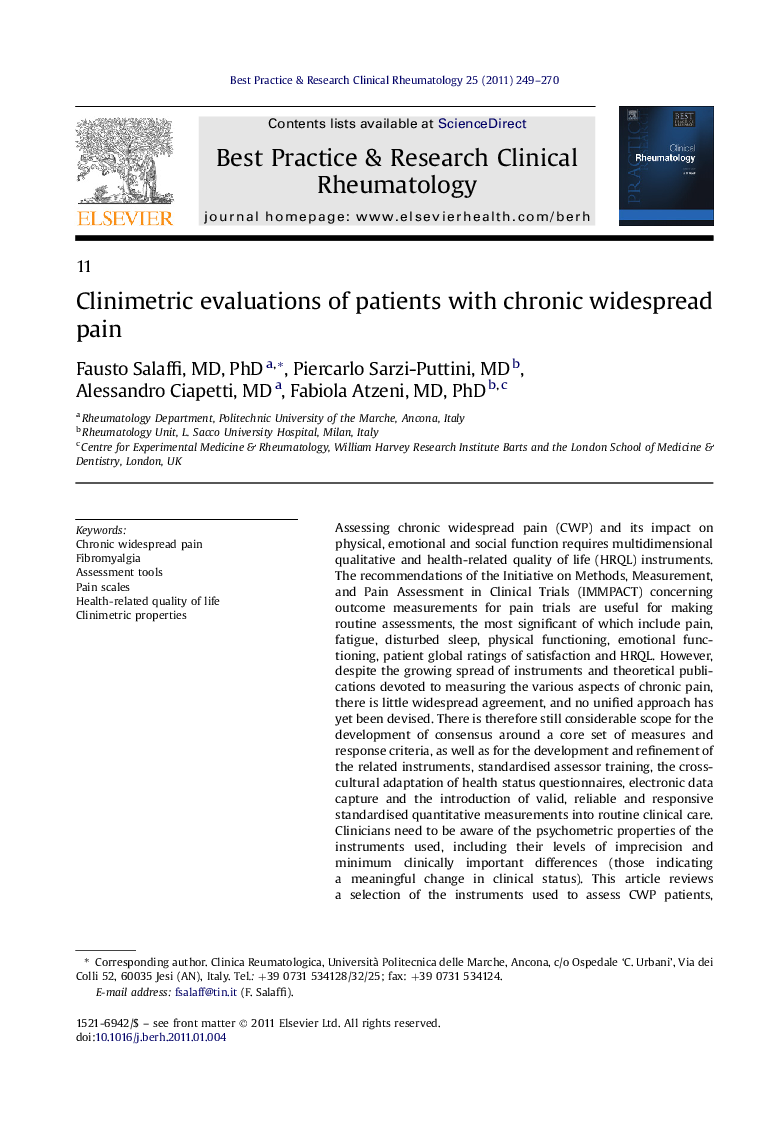| Article ID | Journal | Published Year | Pages | File Type |
|---|---|---|---|---|
| 3343093 | Best Practice & Research Clinical Rheumatology | 2011 | 22 Pages |
Assessing chronic widespread pain (CWP) and its impact on physical, emotional and social function requires multidimensional qualitative and health-related quality of life (HRQL) instruments. The recommendations of the Initiative on Methods, Measurement, and Pain Assessment in Clinical Trials (IMMPACT) concerning outcome measurements for pain trials are useful for making routine assessments, the most significant of which include pain, fatigue, disturbed sleep, physical functioning, emotional functioning, patient global ratings of satisfaction and HRQL. However, despite the growing spread of instruments and theoretical publications devoted to measuring the various aspects of chronic pain, there is little widespread agreement, and no unified approach has yet been devised. There is therefore still considerable scope for the development of consensus around a core set of measures and response criteria, as well as for the development and refinement of the related instruments, standardised assessor training, the cross-cultural adaptation of health status questionnaires, electronic data capture and the introduction of valid, reliable and responsive standardised quantitative measurements into routine clinical care. Clinicians need to be aware of the psychometric properties of the instruments used, including their levels of imprecision and minimum clinically important differences (those indicating a meaningful change in clinical status). This article reviews a selection of the instruments used to assess CWP patients, including validated newly developed and well-established screening instruments, and discusses their advantages and limitations.
